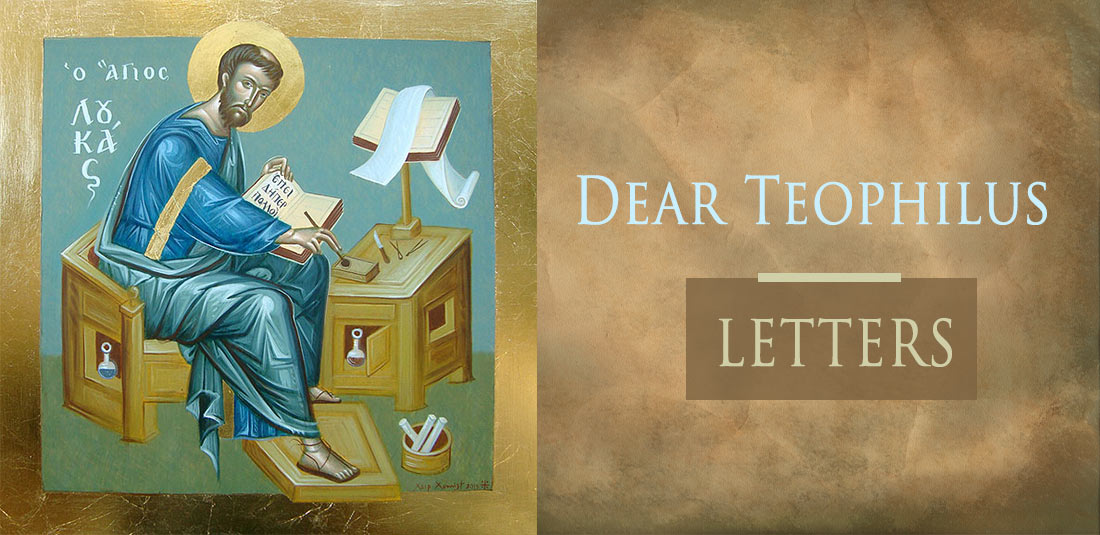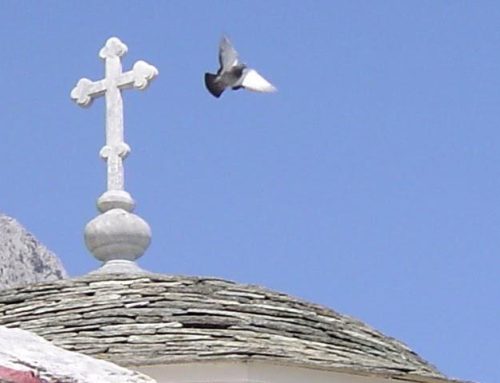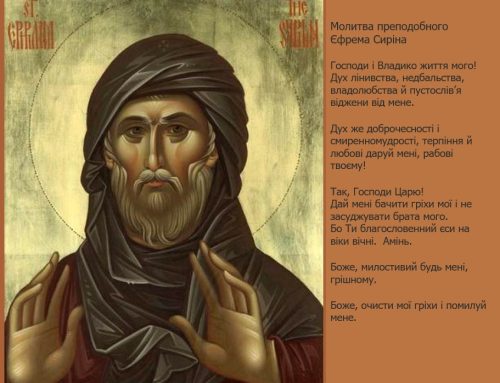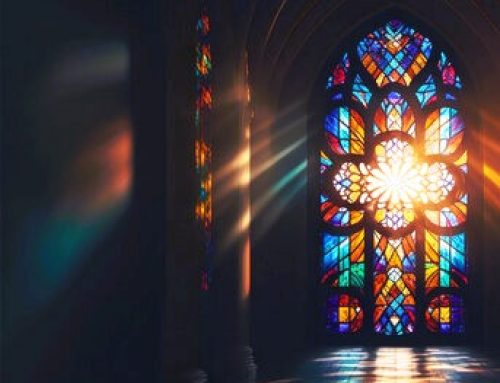Dear Theophilus , (Letter 80. )
The creed starts with: I believe… Now, it is commonly held that to say I believe is a weaker form of statement than saying I know. It seems that to say I believe is to imply that one is uncertain and is open to doubt. But this is not necessarily so because doubt has a far deeper aspect to it than is normally realized.
The believer is often threatened with uncertainty about the solidity of his faith. There are many examples of those who have lived exemplary lives being assailed by doubt. Ste. Thérèse of Lisieux, for example, writes towards the end of her life that she is assailed by the worst temptation of atheism and her mind was beset by every possible argument against belief. In our century we have read how Mother Theresa was beset by doubts in spite of her lifelong belief in God. It almost feels that the basis of one’s life has been undercut under a person and they are left dangling over a threatening abyss.
A French writer, Paul Claudel, has depicted this situation in his play Soulier de Satin. A lone survivor of a shipwreck finds himself afloat in the sea, strapped to a plank of wood. He says in his last monologue: Lord, I thank thee for bending me down like this…now I could not be bound to thee more closely than I am, and however violently my limbs move they cannot get one inch away from thee. So, I am really fastened to the cross, but the cross on which I hang is not fastened to anything else. It drifts on the sea.
Yes, the cross seems to be attached to nothing else and drifts over an abyss of water of immeasurable depth. Only a thin plank stands between the man and his destruction but when all is said and done, we have nothing substantial to support our life but that thin plank. Only a loose plank in fact, connects him to God, and in the last analysis, he knows that this wood is stronger than the void that is trying to swallow him up into oblivion.
The believer perfects his faith on the ocean of doubt, and uncertainty, but the unbeliever is also not immune to doubt as well. No matter how strongly he proclaims that only what can be measured and touched and seen is real, there, like a worm, resides the niggling uncertainty that maybe, just maybe, he is mistaken.
Buber illustrates this point in one of his Hassidic tale.
An adherent of the Enlightenment, a very learned man, who had heard of the Rabbi of Berdichev, paid a visit to him in order to argue, as was his custom, with him, too, and to shatter his old-fashioned proofs of the truth of his faith. When he entered the Rabbi’s room, he found him walking up and down with a book in his hand, rapt in thought. The Rabbi paid no attention to the new arrival. Suddenly he stopped, looked at him fleetingly, and said ; “But perhaps it is true after all.” The scholar tried in vain to collect himself – his knees trembled, so terrible was the Rabbi to behold and so terrible his simple utterance to hear. But Rabbi Levi Yitschak now turned to face him and spoke quite calmly: “My son. The great scholars of the Torah with whom you have argued wasted their words on you: as you departed you laughed at them. They were unable to lay God and his Kingdom on the table before you, and neither can I. But think, my son, perhaps it is true.” The exponent of the Enlightenment opposed him with all his strength; but this terrible ‘perhaps’ that echoed back at him time after time, broke his resistance.
No matter how strongly an unbeliever feels about his position, he cannot totally erase that threatening ‘perhaps’. It is one of the ironies that both the believer and the unbeliever share a common heritage of faith and doubt. Perhaps, in this way, through doubt, both sides are enabled to listen and to hear the other side.
The bottom line is that man was fashioned in such a way that his eyes are only capable of seeing what is ‘not God’, of seeing what is tangible, and measurable. Man’s vision is limited and this becomes quite clear in what is called the electromagnetic spectrum. The spectrum is the total wavelengths of radiant energy that are in the cosmos and man is limited to the visible portion of this spectrum – going from red to violet. But outside that we have the infrared region, the ultraviolet region and other high energy regions of the spectrum such as gamma rays, cosmic rays and even X-rays. The very physical structure of reality shows us that we have a very limited capacity to see all of it.
God does not appear in man’s field of physical vision and herein lies the center of the bone of contention between the theist and the atheist. And no matter how far we extend man’s grasp, his field of vision, God will always be beyond it. What this points out is that man needs an additional manner of access to reality, through the totality of the visible and invisible worlds. We cannot, with all certainty, rule out everything that we cannot inspect with our physical eyes.
It is this invisible element of reality that supports and makes possible all the rest of reality. And it is this component which grants man a truly human existence, an ability to be a real and true human being.
At the very core of human existence there is a center that cannot be nourished and supported only by the visible and tangible. Man must repent and undergo metanoia to realize how blind and limited he is in only accepting what can be seen. Without this change in his view, it is impossible for man to truly believe. In the thirteenth century, the Franciscan theologian Bonaventure felt obliged to reproach his colleagues at the philosophical faculty of the university of Paris with having learned how to measure the world but having failed to measure man.
But there is another aspect to the statement ‘I believe’. It is often portrayed, and in fact you have done so, that it is science that is modern but it is belief that is outdated and of little use to modern man. I think that this is a rather unfortunate way to state the matter. It is false to say that faith is outdated in what it claims but the fact is that faith is timeless and does not change with time. I want to point out to you that it is modernity that has bewildered and alienated man, freed humanity from witchcraft but enslaved it to the dogmas of science, liberated man through the Enlightenment but imprisoned him through a strict rationality, blessed man with the power to improve his material world but also enabled him, at the push of a button, to end it all in a holocaust. Progress has become the new god but a god that gives only spurious promises and always demands a terrible cost, which is often hidden.
Let me again reiterate – belief in the sense of our faith is not an incomplete kind of knowledge, something that needs to be corrected as science progresses. It is a different kind of attitude whose focus is not so much on what can be made or improved for physical comfort but a guide as to who man is and how he is to behave. It focuses more on meaning as opposed to knowledge. Remember, that meaning is not born from knowledge – it is born from the invisible dimension of reality.
Belief has a personal component in it and to a certain extent, it is a response to a personal call to man. It is the finding of a ‘you’ that upholds me and promises me an indestructible love that gives birth to a longing for eternity and also guarantees it. In the final analysis, believing, trusting and loving are one and they are born of the deep change that occurs in us called metanoia.
The believer will repeatedly experience the darkness cast by doubt which seems so decisive. The human fate is such that we cannot have final and absolute knowledge this side of death. This kind of knowledge would destroy us and therefore we are called on to live by faith and not by knowledge.
The central formula of Christianity is not I believe in something, which is often the way it is stated today, but I believe in you and the you is Jesus Christ. Belief is the encounter with the man Jesus, and through this we see the world and all of creation in a different light – the light of personhood. He is the face of God in the world – he is the presence of the eternal in the temporal. He is the meaning of existence and it is this that we believe in.
I hope that there is food for thought for you here in why we say that we believe as opposed to we know.
Sincerely,
Bar-Abbas.






